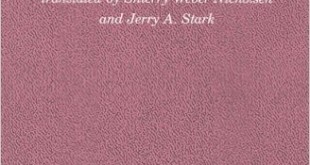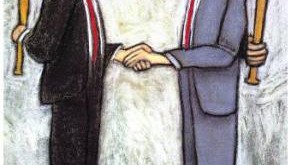Mainstream economics — nothing but pseudo-scientific cheating A common idea among mainstream — neoclassical — economists is the idea of science advancing through the use of ‘as if’ modeling assumptions and ‘successive approximations’. But is this really a feasible methodology? I think not. Most models in science are representations of something else. Models “stand for” or “depict” specific parts of a “target system” (usually the real world). All theories and models have to use sign...
Read More »Macroeconomic forecasting
Macroeconomic forecasts produced with macroeconomic models tend to be little better than intelligent guesswork. That is not an opinion – it is a fact. It is a fact because for decades many reputable and long standing model based forecasters have looked at their past errors, and that is what they find. It is also a fact because we can use models to generate standard errors for forecasts, as well as the most likely outcome that gets all the attention. Doing so indicates errors of a similar...
Read More »Some unfounded expectations of economic theory
Some unfounded expectations of economic theory The weaknesses of social-scientific normativism are obvious. The basic assumptions refer to idealized action under pure maxims; no empirically substantive lawlike hypotheses can be derived from them. Either it is a question of analytic statements recast in deductive form or the conditions under which the hypotheses derived could be definitively falsified are excluded under ceteris paribus stipulations. Despite their reference to reality, the...
Read More »Armchair theorists
One may conclude that … theoretical analysis still has not yet absorbed and digested the simplest fact establishable by the most casual observation. This is a situation ready-made for armchair theorists willing to make a search for mathematical tools appropriate to the problems indicated. Since the mathematical difficulties have so far been the main obstacle, it may be desirable in initial attempts to select postulates mainly from the point of view of facilitating the analysis, in prudent...
Read More »Neoclassical distribution theory
Walked-out Harvard economist Greg Mankiw has more than once tried to defend the 1 % by invoking Adam Smith’s invisible hand: [B]y delivering extraordinary performances in hit films, top stars may do more than entertain millions of moviegoers and make themselves rich in the process. They may also contribute many millions in federal taxes, and other millions in state taxes. And those millions help fund schools, police departments and national defense for the rest of us … [T]he richest 1...
Read More »Trickle-down economics — neoliberal mumbo jumbo
Trickle-down economics — neoliberal mumbo jumbo [embedded content]
Read More »Suspect macroeconomic ideas
The advocates of free markets in all their versions say that crises are rare events, though they have been happening with increasing frequency as we change the rules to reflect beliefs in perfect markets. I would argue that economists, like doctors, have much to learn from pathology.We see more clearly in these unusual events how the economy really functions. In the aftermath of the Great Depression, a peculiar doctrine came to be accepted, the so-called “neoclassical synthesis.” It...
Read More »October’s Job Numbers: Good news for Main Street viewed as bad news by Wall Street
October’s employment report was strong with regard to both jobs and wages, which is good news. But the report also reveals the contradictions in our economy. Good news for Main Street is interpreted as bad news by Wall Street. The challenge for the Federal Reserve, and the standard by which it will be judged, is [...]
Read More »Hegelian macroeconomics
The irony of the program of microfoundations is that, in the name of preserving the importance of individual intentional states and preserving the individual economic agent as the foundation of economics, it fails to provide any intelligible connection between the individual and the aggregate. Instead, it embraces the representative agent, which is as close to an untethered Hegelian World (or Macroeconomic) Spirit as one might fear in the microfoundationist’s worst nightmare. Kevin...
Read More »Big Think on Keynes
Big Think on Keynes [embedded content]
Read More » Heterodox
Heterodox







